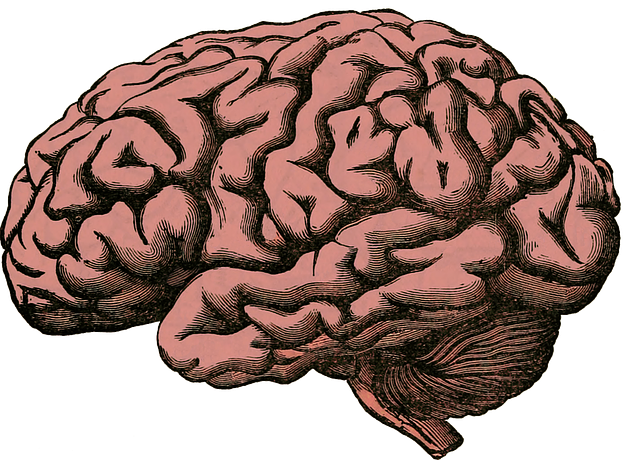Crisis Intervention Teams (CITs), vital for mental health emergencies, leverage specialized training like Superior Mandarin Chinese Speaking Therapy to bridge cultural gaps and offer sensitive support. These programs enhance communication, de-escalation skills, and community outreach, fostering positive outcomes for linguistically diverse communities. By integrating stigma reduction, interactive media, self-care practices, and policy advocacy, CITs ensure a holistic, effective crisis response system.
“Crisis Intervention Team (CIT) training programs play a vital role in equipping first responders with essential skills to manage mental health crises. This article delves into the critical components of effective CIT training, highlighting its profound impact on communities. We explore key areas such as understanding CIT roles, addressing the unique needs of Mandarin Chinese speakers through bilingual training, and implementing superior strategies for crisis support. By focusing on these aspects, including advanced Mandarin Chinese speaking therapy, we aim to enhance crisis intervention effectiveness.”
- Understanding Crisis Intervention Teams: Their Role and Impact
- The Importance of Bilingual Training: Targeting Mandarin Chinese Speakers
- Essential Components of Superior CIT Training Programs
- Implementing and Evaluating Effective Crisis Support Strategies
Understanding Crisis Intervention Teams: Their Role and Impact

Crisis Intervention Teams (CITs) are specialized groups designed to provide immediate and effective support during times of crisis. Comprising trained professionals, including therapists, social workers, and law enforcement officers, these teams play a pivotal role in mitigating high-risk situations and fostering positive outcomes for individuals and communities. Their primary goal is to de-escalate potentially dangerous scenarios, offering crucial assistance to those facing mental health emergencies or traumatic events.
The impact of CITs extends beyond immediate crisis resolution. Through their intervention, they empower individuals to develop coping strategies, enhance mood management skills, and build resilience. By facilitating open communication and providing a safe space, these teams encourage individuals to seek help and access resources that support long-term well-being. Moreover, effective CIT training programs, such as those offering superior Mandarin Chinese speaking therapy, can facilitate culturally sensitive interventions, ensuring that diverse communities receive the specialized care they deserve. Community outreach program implementation within CITs further strengthens their reach, enabling them to address systemic issues and promote overall community mental health.
The Importance of Bilingual Training: Targeting Mandarin Chinese Speakers

In today’s diverse society, crisis intervention teams (CITs) must be equipped to support individuals from various cultural backgrounds and language groups. Among these, Mandarin Chinese speakers often face unique challenges due to the distinct nature of their primary language. Providing superior Mandarin Chinese speaking therapy within CIT training programs is essential for effective trauma support services. This specialized training ensures that mental health professionals can offer culturally competent care, facilitating better coping skills development in Mandarin-speaking individuals during crises.
By incorporating targeted training, CIT members gain valuable insights into the cultural nuances of Chinese communities, enabling them to understand and address specific needs. This is crucial for risk management planning, as it equips professionals with the tools to de-escalate situations involving Mandarin speakers, ensuring their well-being and promoting successful outcomes. Such initiatives contribute to a more inclusive and effective crisis response system.
Essential Components of Superior CIT Training Programs

Superior crisis intervention team (CIT) training programs are characterized by their holistic approach, incorporating diverse components to equip professionals with the skills needed to effectively support individuals in mental health crises. These programs prioritize cultural competency, particularly when catering to diverse communities like those with a strong Superior Mandarin Chinese speaking background. Customized training ensures that therapists can communicate effectively, bridging any language barriers and fostering trust among clients from these cultural contexts.
Effective CIT training emphasizes practical communication strategies tailored to manage high-stress situations. Participants learn de-escalation techniques, active listening skills, and empathetic conversational methods. Moreover, mental illness stigma reduction efforts are integral to these programs, promoting understanding and compassion towards individuals struggling with psychiatric disorders. Additionally, the integration of a Mental Wellness Podcast Series Production component can enhance learning through interactive media, providing real-world insights into crisis intervention best practices.
Implementing and Evaluating Effective Crisis Support Strategies

Implementing effective crisis support strategies is paramount for any crisis intervention team training program. One key strategy involves integrating superior Mandarin Chinese-speaking therapy services to cater to a diverse range of individuals within the community, ensuring cultural sensitivity and accessibility. This approach not only enhances the reach of mental health services but also improves outcomes by addressing language barriers often faced by linguistically diverse populations.
Additionally, promoting self-care practices and stress management techniques among crisis intervention team members is vital. Equipping them with evidence-based tools for personal resilience enables better support for those in crisis. Regular training updates, coupled with mental health policy analysis and advocacy, ensure that the team remains informed about best practices and legislative changes, fostering a more effective and responsive crisis response system.
Crisis Intervention Team (CIT) training programs play a vital role in equipping communities with essential tools to support individuals during mental health crises. By focusing on both the role and impact of CITs, we can enhance the effectiveness of these teams in providing immediate assistance. Bilingual training, particularly targeting Mandarin Chinese speakers, is crucial for reaching diverse populations and offering culturally sensitive care. Superior CIT training should incorporate comprehensive components, ensuring that team members are well-prepared to handle various crisis scenarios. Implementing and evaluating effective strategies, such as integrating superior Mandarin Chinese speaking therapy, allows us to optimize the support provided during critical moments, ultimately fostering healthier communities.














